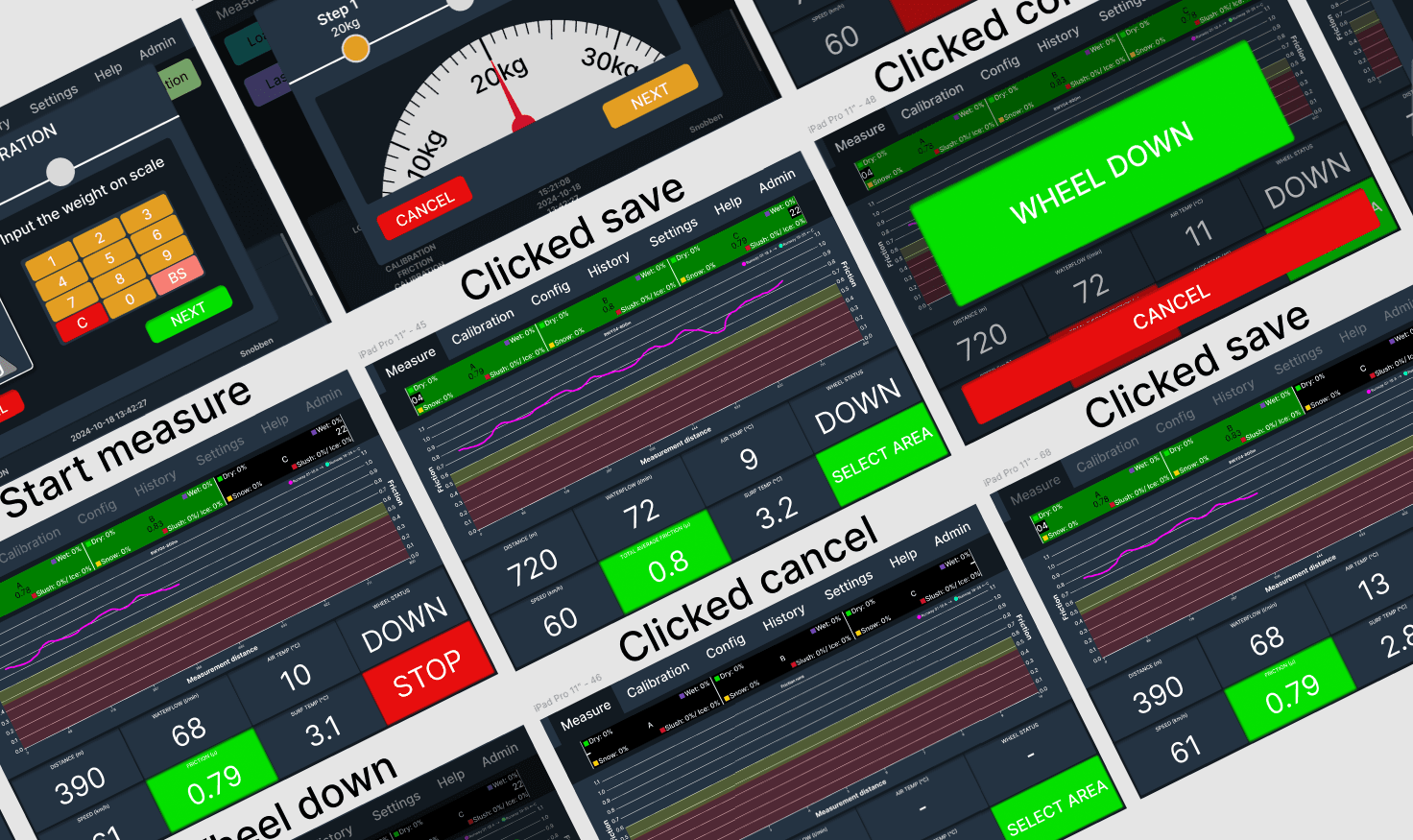FALCON
Software I developed for Sarsys-ASFT’s Falcon, a PLC-based system with advanced rules and laser integration to measure runway friction and surface status for airports worldwide.
Full-Stack Development
Frontend Development (Vue.js, TypeScript), Backend Development (GraphQL APIs, Azure, MySQL), Real-Time Data Handling (WebSockets & Subscriptions), UI/UX Enhancements, Hardware–Software Communication, System Optimization
Falcon is Sarsys-ASFT’s flagship friction tester, installed in specialized vehicles and used by airports worldwide. Unlike the portable T2Go, Falcon runs on a PLC system and integrates hydraulic sensors and lasers to capture both runway friction values and surface status depending on weather conditions.
My role in the project was full-stack development, and the process was highly hands-on. Each time we improved the software, we would install the new build directly into the Falcon car and test it on-site. This immediate feedback cycle allowed us to validate features in real-world conditions and refine the system continuously. Because aviation association regulations are constantly updated, Falcon’s software had to be flexible — rules and workflows often had to be modified to stay compliant.

Beyond the live measurement features, I worked on how the collected data is processed and shared. The system generates detailed reports in PDF, Excel, and JSON, which can either be saved locally via USB or uploaded directly to our cloud platform, MIDAS, for customers with subscriptions. This integration means operators can access their measurement data anywhere, without needing to be physically near the vehicle.
Collaborating closely with the hardware team, sales, and airport operators themselves, I helped design a software system that is accurate, regulation-compliant, and intuitive to use in the field. Today, Falcon’s upgraded software supports safe and efficient runway operations for airports around the world.
Check it out